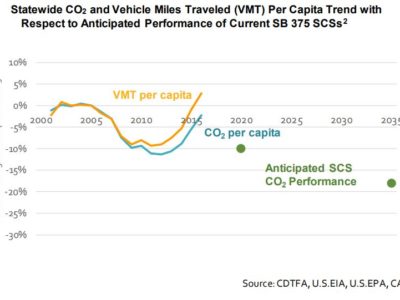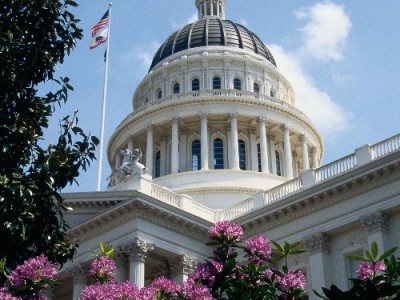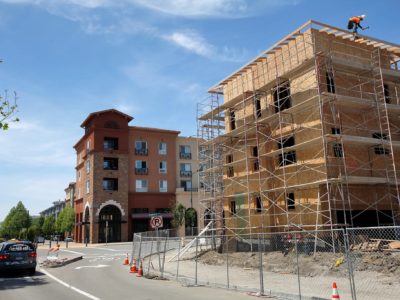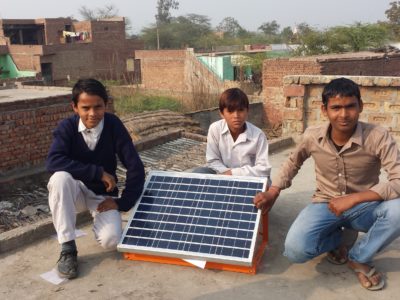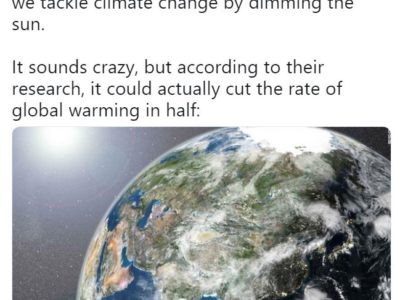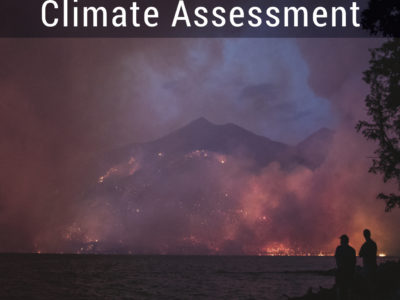Climate Change
Climate Negotiations Start in Poland: Setting the Stage
Much at Stake in COP-24, Including Negotiation of Paris Rulebook to Implement 2015 Commitments
This week and next, negotiators are meeting in Poland for the big annual international climate-change meeting. This meeting, formally, is the 24th Conference of the Parties to the UN Framework Convention on Climate Change, the 1992 treaty that provides the foundation for all official international action on climate change, and informally is called “COP-24.” It …
Continue reading “Climate Negotiations Start in Poland: Setting the Stage”
CONTINUE READINGWe’re Never Going to Meet Our GHG Transportation Goals Unless We Radically Rethink Our Cities
Introducing an ongoing series focused on reducing vehicle miles traveled as a crucial climate mitigation strategy
I’ve been thinking a lot lately about vehicle miles traveled, or VMT. Specifically, why is it so hard to get people to think seriously about reducing VMT as a climate mitigation strategy? Building on my earlier ode to electric scooters, this post begins a semi-regular series on different aspects of VMT reduction strategies, beginning with …
CONTINUE READINGRecommendations For Governor-Elect Newsom To Address Wildfire, Water, & Climate and Transportation Threats
New CLEE and Resources Legacy Fund report based on three expert convenings
Climate change exacerbates the droughts, floods, and wildfires that Californians now regularly experience, making them even more extreme and unpredictable. Gavin Newsom, California’s next governor, faces the urgent challenge of simultaneously preparing for inevitable disaster, improving the quality of life for residents, and minimizing the greenhouse gas emissions of a society of nearly 40 million …
CONTINUE READINGMajor Legislation Reintroduced To Limit Local Restrictions On Housing Near Transit
State Sen. Scott Wiener takes another stab at solving California’s severe housing shortage
Last year, State Senator Scott Wiener (D-San Francisco) went right to the heart of California’s massive housing shortage in its job-rich centers with SB 827, which would have limited local restrictions on housing near transit. The bill went down in committee, a victim of election year politics and diverse opposition from wealthy homeowners, tenants rights …
CONTINUE READINGGood News From India
While we’ve been obsessing about Trump, India has made great strides in renewable energy.
We get so focused on the problems in our own country that it’s easy to lose track of what’s happening globally. It turns out that while we’ve been mired in our own travails, India has been making remarkableprogress on renewable energy. What happens in India has tremendous significance. It is now the most populous country …
Continue reading “Good News From India”
CONTINUE READINGDon’t Believe Everything That You Read
Solar geoengineering is often inaccurately portrayed in the media
If you had followed the climate change news over the weekend, you might have been shocked to see headlines such as “Scientists Prescribe a Healthy Dose of Sulphate Particles to Promote Global Cooling on the Cheap.” CNN tweeted that “Harvard and Yale scientists are proposing that we tackle climate change by dimming the sun.” And …
Continue reading “Don’t Believe Everything That You Read”
CONTINUE READINGDoes the New National Climate Assessment Hurt the Trump Administration in Court?
The Report Could Affect a Number of Cases
The newly released Fourth National Climate Assessment is a bombshell. It catalogues, in excruciating detail, the dire health, economic, and environmental consequences of unchecked climate change on every region of the United States. And although the Trump Administration appears to have tried to minimize the report’s political and public impact by dropping it on Black …
Continue reading “Does the New National Climate Assessment Hurt the Trump Administration in Court?”
CONTINUE READINGNetherlands Government Appeals Historic Climate Change Ruling
The Dutch Supreme Court will decide whether the government is obligated to cut emissions more
Last month, an appeals court in the the Netherlands upheld a lower court’s ruling that the Dutch government is legally obligated to reduce greenhouse gas emissions more aggressively. This drew much international attention, as well as praise from environmental advocacy organizations. As expected, the government has announced that it will appeal this decision in the Urgenda …
Continue reading “Netherlands Government Appeals Historic Climate Change Ruling”
CONTINUE READINGA Catalogue of Game Changers
We’re making progress on addressing climate change, and I’m hopeful that we’ll continue doing so. Yet it’s not clear whether the path we’re currently on will make progress fast enough to avoid very serious risks. So what would it take for us to make a quantum leap in this effort? I wouldn’t hazard a prediction …
Continue reading “A Catalogue of Game Changers”
CONTINUE READINGFrom the Wildfire Files
Wildfires are getting worse and worse. Here’s what we know about the situation.
I don’t normally do this, but given the terrible wildfires now hitting the state, I thought it was worth doing a reprise of some posts on the subject from earlier this summer. Of course, there’s more information in the original posts, if you want to click over to them. Spreading Like Wildfire In 2017, wildfires …
Continue reading “From the Wildfire Files”
CONTINUE READING



